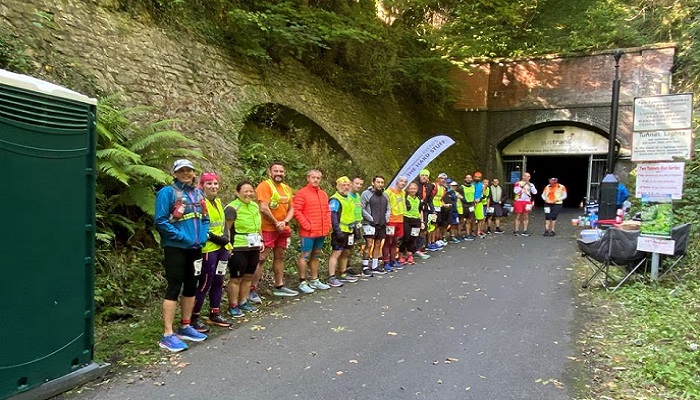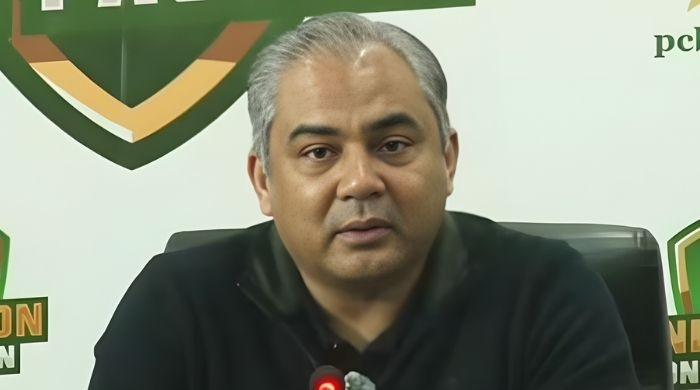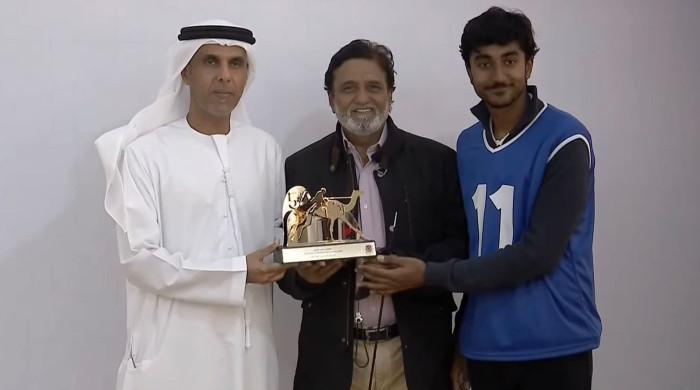Tunnel vision helps as ultra runners enter dark side
For up to 55 hours 40 athletes will run former railway tunnel 200 times — in the dark
March 17, 2023

For ultra runners, possessing tunnel vision is a useful commodity and for those tackling one of Britain's most extreme events later this month, it is a necessity.
For up to 55 hours, a fearless bunch of around 40 athletes will run the length of a one-mile-long former railway tunnel on the edge of Bath 200 times — in the dark.
The event, simply known as 'The Tunnel', was created by former ultra runner Mark Cockbain for those for whom mental and physical exhaustion is like candy to a baby.
"There's a lot of ultra events where everybody turns up, everybody goes through the motions and everybody goes home with a medal," Cockbain, who ran ultras in the Himalayas, Arctic and Death Valley until his knees packed up, told Reuters.
"I wanted to come up with events that are extremely difficult to finish but if you do finish, you're going to remember it for the rest of your life."
Electronics engineer Cockbain said he was looking for a race with some 'X factor' and Combe Down Tunnel provided it.
Described on the official website as "a mind-bending test of extreme endurance and sensory deprivation", The Tunnel is open to only hardcore ultras who have run 100 miles.
This year's event begins at 3.30pm on March 31 and ends 55 hours later, spanning two nights. Only water and basic snacks are provided with runners wearing the high-vis kit, whistles and a head torch. Those who don't make 100 miles in 27 hours are out.
For much of the event, runners will be alone in pitch darkness with only their head torches lighting the way. Listening to music via headphones to break the monotony is forbidden.
Since it began in 2019, only 14 people have completed The Tunnel -- many succumbing to exhaustion and some, according to Cockbain, losing their marbles.
"One French guy who's a well-known ultra runner said it was horrendous," Cockbain recalls. "He got really bad hallucinations on the second night and you could tell he kind of lost it a bit. He was just talking gibberish."
Ultra running, basically, anything over a marathon is gaining in popularity. But what is the appeal?
Vic Izzy Owens knows a thing or two about extreme running. She completed a 253-mile non-stop run down the length of Wales. She also set a world record for the furthest barefoot run by a female in 24 hours, clocking up 96.4 miles.
But she met her match in The Tunnel in 2021 and will be trying for the second time to complete it.
"You're there alone, battling through the darkest of miles, stripped back to the very rawness of your humanity," she says.
"The Tunnel is a mental battle. I'm going back and I'm prepared to give it my all, and embrace every mental breakdown that's going to hit me, over and over again."
Some previous entrants talk of severe hallucinations. Former army driver Karl Baxter, aiming to complete it for a second time, described it in nightmarish terms.
"I saw a family of abominable snowmen on the side of a wall, clinging on," he said. "Then there a massive slug came towards me with a cigarette in its mouth."
For others, it's not quite as traumatic.
Builder Brendan Turner said he consumed so many sweet snacks that it was like running to dozens of children's parties.
"I don't really know why we do it," he told Reuters. "For me, the darkness side of it never got to me, I'm used to my own company, I've run a lot on my own, I work on my own.
"I just survived on pot noodles, jaffa cakes and Pringles really. Some people can run on a sniff of wheat grass and a Brussels sprout but I need lots of sugar."
Falling asleep is not an option either, says Turner who nodded off while running The Tunnel and became totally disorientated and did not know which direction he was going.
Like all ultra runners though, he said any discomfort is quickly forgotten as they seek the next fix.
"The week after you've done one it's a big anti-climax," he said. "That's when you sign up for the next race."









